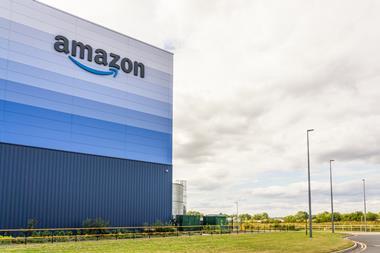Amid the global Covid-19 pandemic, an important topic that has come sharply into focus is environmental, social and governance (ESG) considerations.
There is a heightened investor, regulator, employee and consumer scrutiny on corporate ESG performance.
This is partly because ESG was already (pre-Covid-19) a key issue in its own right, but it now also touches on so many other issues that are themselves a consequence of the current crisis – for example, increased reliance on online delivery, supply chain resilience, etc.
This has particular relevance for the retail sector as firms look to restore consumer confidence and regain market value.
What is ESG?
ESG refers to a broad set of issues by which the sustainability, ethical and societal impact of a business is measured.
In the context of investing, it’s an umbrella term that is synonymous with assessing financial performance through the lens of long-term impact on society and the environment.
Critically, ESG performance is measured not with reference to regulatory compliance, but against the expectations of a broad set of stakeholders, including customers, suppliers and community, in addition to more traditional stakeholders, such as shareholders and lenders.
The burgeoning emphasis on ESG issues for business, regulators and consumers pre Covid-19 has now been substantially elevated and the pandemic is a key inflection point for action on these issues
The burgeoning emphasis on ESG issues for business, regulators and consumers pre Covid-19 has now been substantially elevated and the pandemic is a key inflection point for action on these issues.
Businesses are likely to be judged – both by stakeholders and consumers – on how they address these issues, therefore ESG should be at the forefront of any retailers’ resilience and contingency planning looking ahead.
How does ESG impact the retail sector?
According to the Sustainability Accounting Standards Board – one of the key global sustainability assessment and reporting frameworks – significant ESG issues commonly facing the retail sector include energy and waste management, customer privacy and data security, product quality and safety, labour practices, employee engagement, diversity and inclusion, product design and life cycle management, supply chain management and materials sourcing and efficiency.
The increased demand for improved ESG performance against these material issues is impacting the retail sector in many ways, including:
-
A demand to know more about a business’ sustainability efforts, environmental practices, social initiatives and impact
-
A shift towards more eco-friendly products, including an investment in local sourcing and sustainable materials, as well as end of product life consideration and incorporation of circular economy approaches
-
Operational efficiencies – implementation of sustainability initiatives between retail chains and their partners, e.g. landlords (use of LED light bulbs, on-site renewable energy, etc)
-
Reconsideration of supply chains, particularly around manufacturing and labour
-
The integration of ESG into brand and IP strategy, including socially responsible marketing and advertising
-
An increased desire for brands that demonstrate their environmental and humanitarian credentials – in a meaningful way
The responses developed to these issues are changing the way that retailers define their purpose, think about their products and their stewardship responsibilities, raise capital, measure and reward performance, and report to both their shareholders and other stakeholders.
While ESG presents a significant challenge for retailers, it equally presents one of the single biggest opportunities.
While ESG presents a significant challenge for retailers, it equally presents one of the single biggest opportunities.
With sustainability and social issues at the forefront of public consciousness and consumers seeking even more of a connection with people and the brands they consume, ESG can be utilised as a core competitive differentiator.

Ruth Hoy is a partner at DLA Piper and is based in London and Jessie Buchan is a senior associate at DLA Piper’s Sydney office.
































